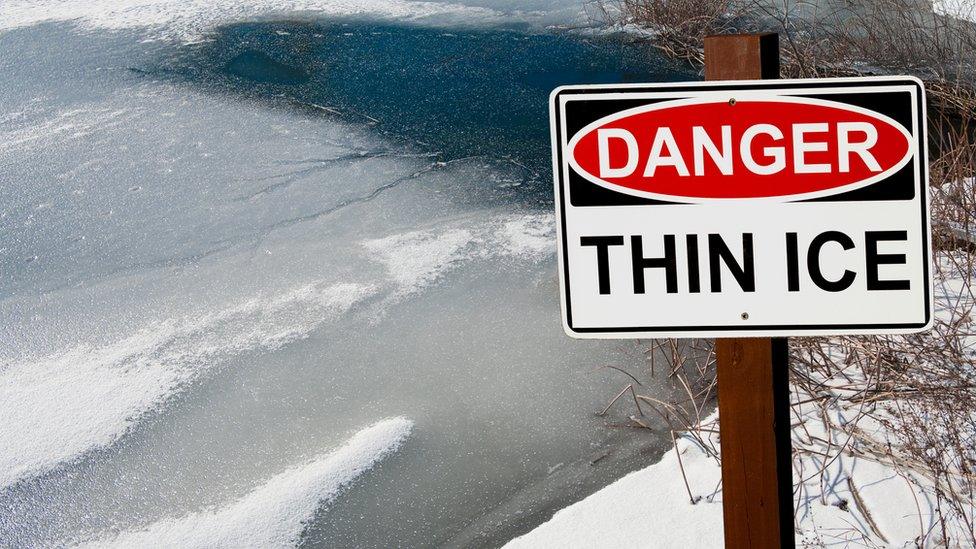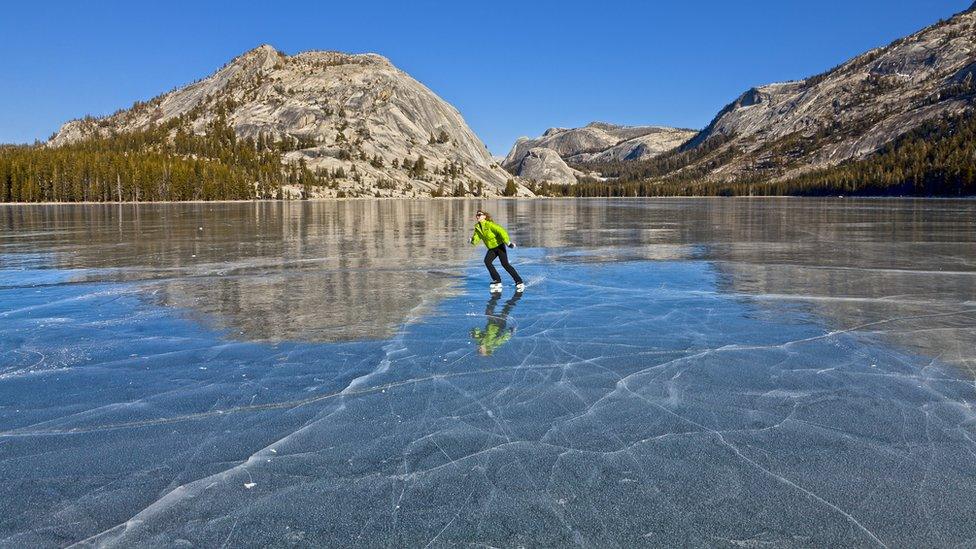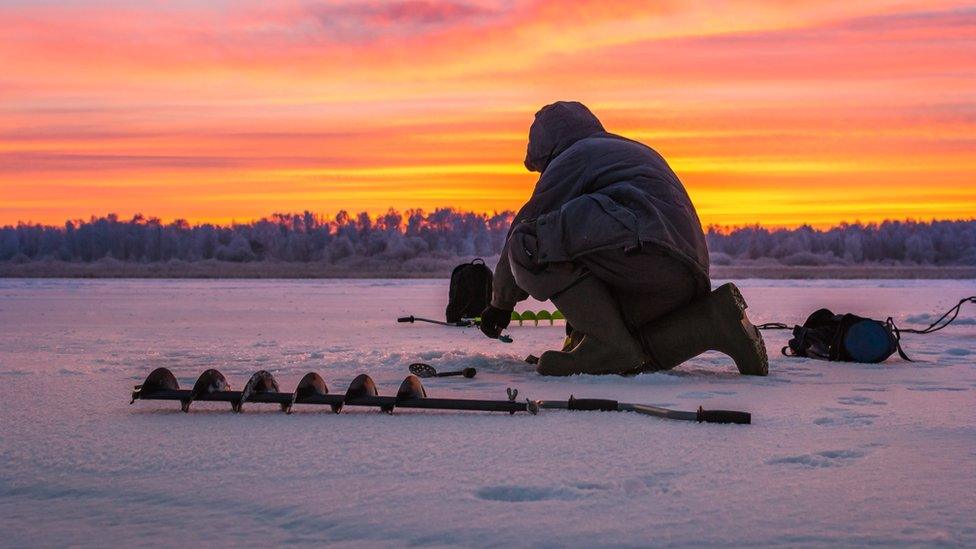Lakes 'skating on thin ice' as warming limits freeze
- Published

Thousands of lakes across the Northern Hemisphere are set to lose their winter ice as global temperatures rise, say scientists.
Their new study suggests that, within a generation, over 35,000 lakes will lose their winter cover.
The researchers involved say the disappearance will have significant implications for millions of people living near these bodies of water.
It could also pose a threat to supplies of drinking water and to fish species.
Right now some 15,000 lakes in Canada, the US and northern parts of Europe experience intermittent ice cover during the winter months. This means that they freeze in the colder winters but remain ice free when winters are warmer.

Traditional activities such as outdoor skating may become more difficult as the world warms
This is already posing problems for communities living in these regions who rely on ice roads that cross lakes for food supplies and social connection.
Lake ice is also seen by scientists as an important long-term indicator of climate change and one of the world's resources most threatened by rising temperatures.
Now, in what researchers believe is the most comprehensive analysis of lake ice loss, researchers say that many more lakes are set to go ice free in winter.
If the world manages to keep the rise in global temperatures to 2C, the study suggests that the number of lakes experiencing intermittent ice will increase to over 35,000. This may have implications for 394 million people who live within an hour of their shores.
"We're not taking about lakes getting a little warmer. We are talking about lake ice being gone in the winter," said Dr Catherine O'Reilly, a co-author on the study from Illinois State University.
"Our children and grandchildren would not see something we have taken for granted."
In a worst case scenario, where the world warmed by 8C by the end of this century, the number of lakes impacted would be 230,400.
The authors stress that rather than being some long term prediction of the future implications of warming, this melting is happening now.
"It won't require that much warming for these impacts to be felt," said lead author Dr Sapna Sharma, from York University in Toronto, Canada.
"It's happening right now - Lake Superior for example is no longer freezing every winter. The Great Lakes are experiencing it. We have examples from all around the world of lakes that are experiencing this big change and we predict its going to occur in a lot more lakes in the future."
As well as promising an end to cultural and recreational activities such as outdoor skating and ice fishing, the loss of lake ice is also threatening environmental impacts. Lakes that don't freeze over are more susceptible to losing more water through evaporation.

Disappearing ice - a case study
From Alaska to Canada, from Germany to Japan, the report highlights similar trends in disappearing ice.
At Lake Suwa in Japan, data on the onset of ice has been collected since the 1400s. Local legend has it that a ridge in the ice is formed by the feet of the Shinto gods as they cross the lake.
Priests have recorded the date when this icy ridge appears since 1443. In the first 250 years of records, the lake didn't freeze just three times. Between 2005 and 2016, there were seven winters when the lake was freeze free.

Lakes get warmer faster in the spring with the potential onset of harmful algal blooms, as well as reduced oxygen levels in the water.
"Ecologically, not having ice on these lakes does not bode well for how the ecosystem will respond," said Dr Sharma.
"Rapid warming of lakes has implications for the potential to have degraded water quality and development of algal blooms earlier on in the open-water season. In addition, dissolved oxygen concentrations could decline earlier in the summer season, leaving more fish at risk of dying due to a compromised habitat."

The threat of melting ice may limit ice fishing in the future
The key element at work in limiting the ice is air temperature. However, there were other factors at play including the shape of the lake, with more circular shorelines receiving greater wind shear across their surfaces, which can prevent the formation of ice.
Water depth is also very important.
"The deeper the lake is, the more heat storage it has and it takes more cold weather to get the lake down to a temp where it could freeze," said Prof John Magnuson, a co-author from the University of Wisconsin-Madison.
The study has been published, external in the journal Nature Climate Change.
Follow Matt on Twitter., external